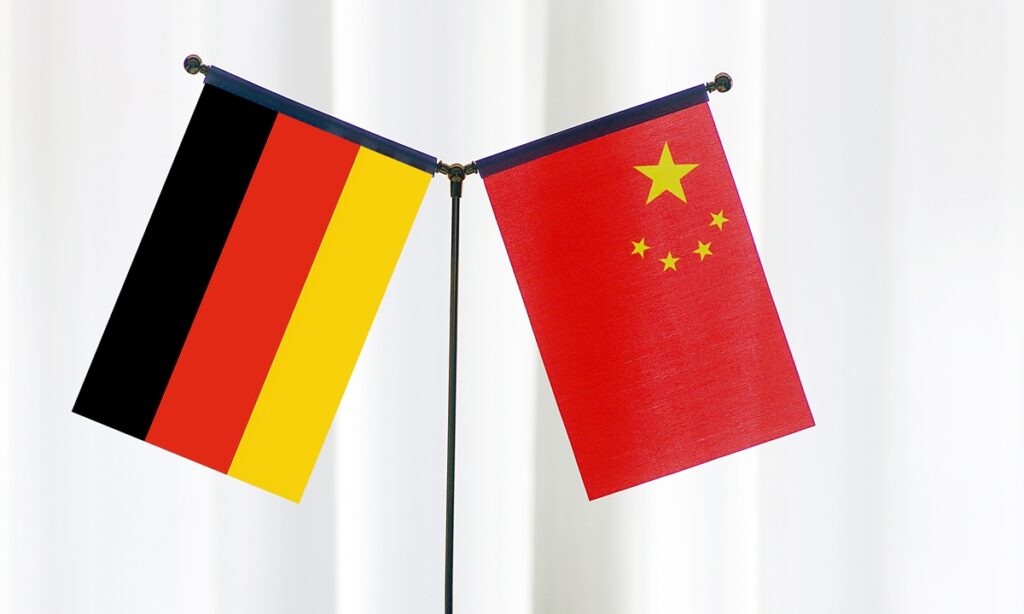The delay to roll out Germany’s new strategy to guide its dealings with China – Germany’s biggest trade partner, shows the complexity and difficulty of coordination inside Chancellor Olaf Scholz’s government, according to Chinese analysts.
However, it would be easier for the Chinese and German governments to carry out effective and candid exchanges at the upcoming seventh round of the China-Germany inter-governmental consultation scheduled on June 20 without having the document to set restrictions and preconditions, they said.
According to Reuters, the new strategy for Germany in its dealings with China faces delays over policy differences within the government, and it will not be in place in time for bilateral talks on June 20, three sources were quoted as saying in the report.
Scholz’s coalition is thrashing out differences over the China review. The foreign affairs and economics ministries, led by junior partner the Greens, favor more restrictive economic relations, Reuters reported. Meanwhile, the German chancellor said on the sidelines of the Group of Seven Hiroshima Summit that big investments would still continue, as would supply chains and exports to China.
Chinese analysts considered Scholz’s remark is a rejection of the “decoupling from China” narrative advocated by a Cold-War mentality haunted US and relevant countries, and it speaks the truth for many other European countries that have strong economic ties with China.
A research report released recently by an Austrian think tank estimates that if decoupled from China, Germany will see its GDP drop by 2 percent annually, equivalent to a loss of 60 billion euros.
The document is seen as a landmark of the new German government’s political reform and the coalition government attaches great importance to it to show how it plans to deal with China in a way different from Scholz’s predecessor Angela Merkel. However, reality proves that the differences between political parties and government departments are extremely hard to coordinate, Cui Hongjian, director of the Department of European Studies at the China Institute of International Studies, told the Global Times on Wednesday.
However, the delay, reportedly until after the inter-governmental talks, leaves room for Berlin to make further adjustments without setting a tone for the communication in haste, while effectively preventing unnecessary hawkish sentiments against China from being added to the document, which is good news for both sides, Cui noted.
According to Bloomberg on April 25, Scholz has invited Chinese Premier Li Qiang for talks in Berlin June 20 with the goals of advancing economic and climate cooperation.
Dubbed the “super engine” for the pragmatic cooperation across wide-ranging fields between two the nations, the consultation mechanism between the two governments has played a key role in constantly enriching the connotation of China-Germany relations, expanding China-Germany cooperation, and planning bilateral relations, since it was launched in 2011.
The sixth edition of talks took place in April 2021 via video link.
Cui noted that the resumption of face-to-face inter-governmental talks would provide a precious opportunity for the two sides to manage their differences and understand each other’s genuine intentions, especially against the backdrop of intensifying geopolitical changes.
China and Germany should stick to the right path and jointly oppose a “new Cold War” as well as “decoupling and disruption” to inject confidence and momentum for world peace and prosperity, Chinese State Councilor and Foreign Minister Qin Gang said during talks with German Foreign Minister Annalena Baerbock in Berlin earlier in May.
Under the current turbulent and intertwined international situation, the two countries should strengthen dialogue and cooperation and actively prepare for the seventh round of China-Germany government consultations to make a comprehensive plan for practical cooperation in various fields between the two sides in the coming period, Qin said.
(Global Times)




